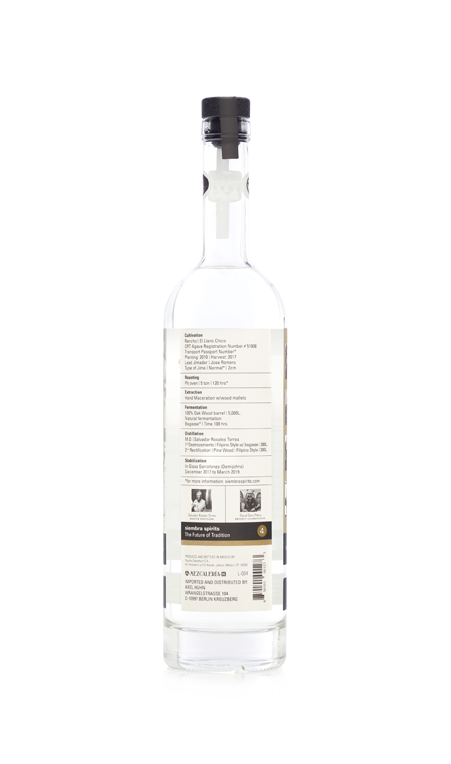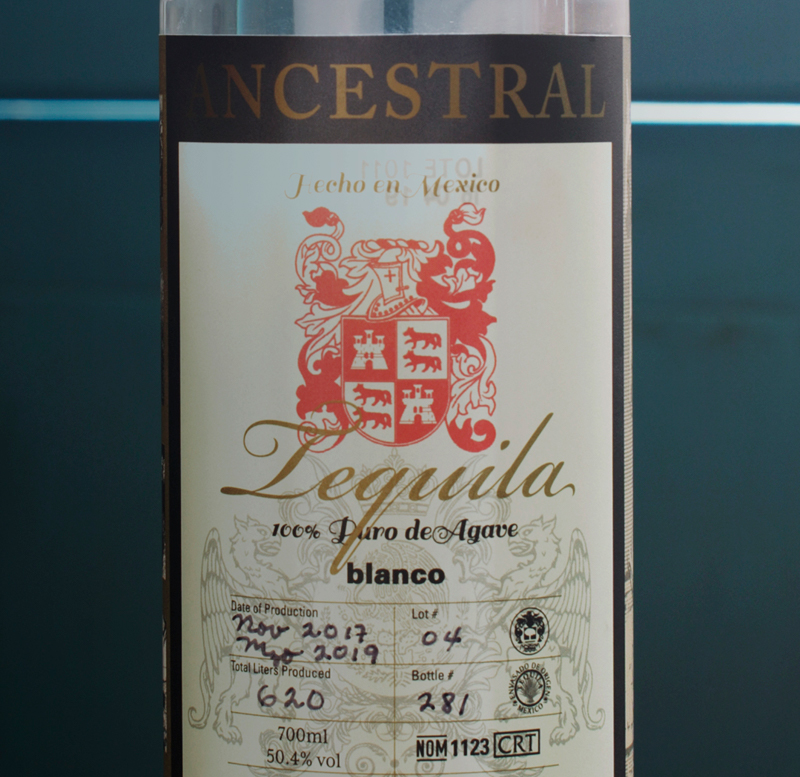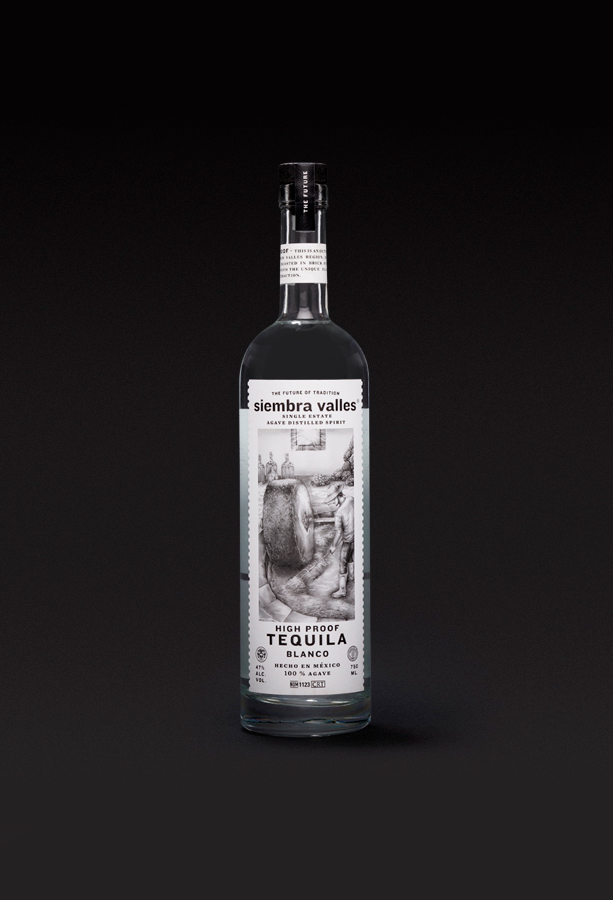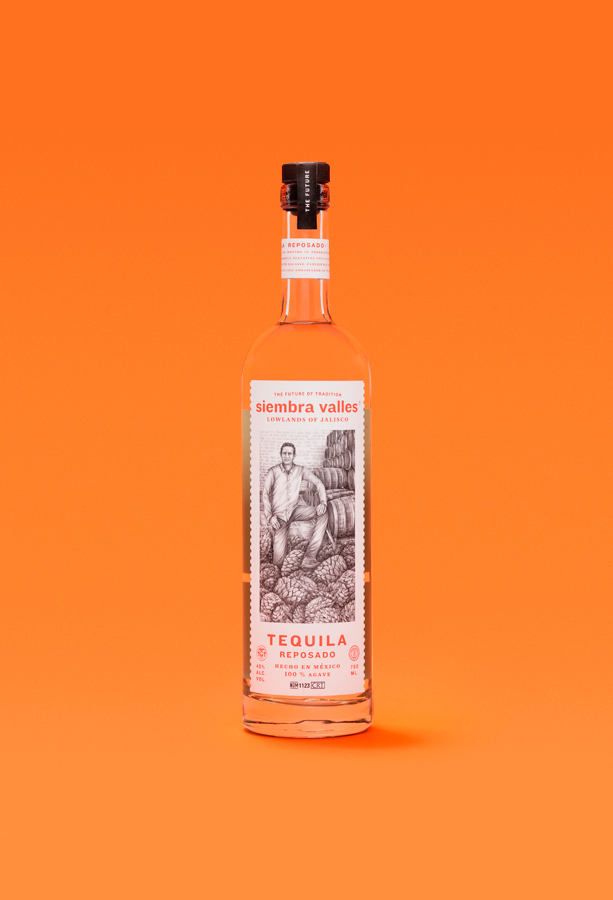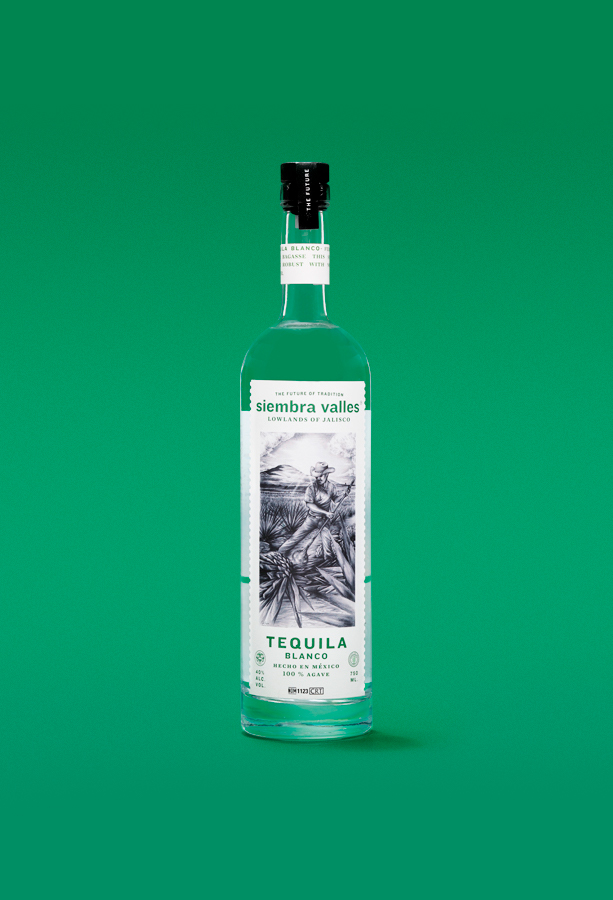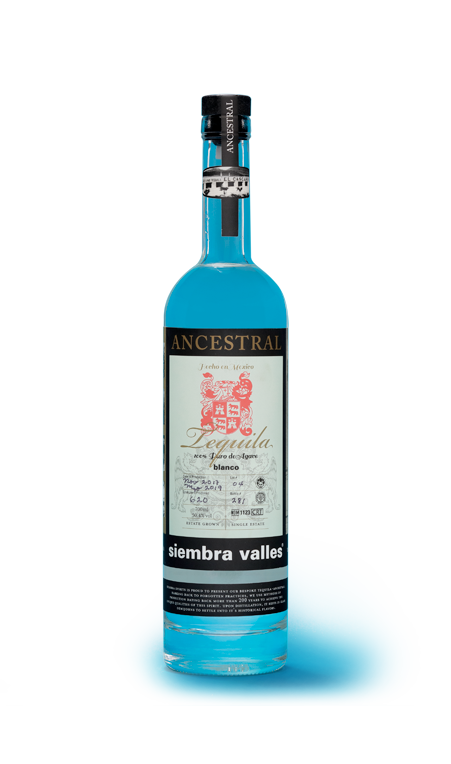
Siembra’s founder, David Suro Piñera, pays tribute to his own ancestry with the Siembra Valles Ancestral label, which proudly features the Piñera family coat of arms in red.

Siembra’s founder, David Suro Piñera, pays tribute to his own ancestry with the Siembra Valles Ancestral label, which proudly features the Piñera family coat of arms in red.
Production
Process is paramount
We embrace traditional methods and reject additives and shortcuts. We hope you enjoy the result
Roasting
Earthen Pit
Ancestral practice is to fire wooden coals at the base of a pit, cover them with agave fibers, pile on raw agave, cover with leaves and fabric, and then bury the entire mound. After five or so days, when the trapped heat has roasted the agave, it’s all dug up and the agaves are macerated and fermented.
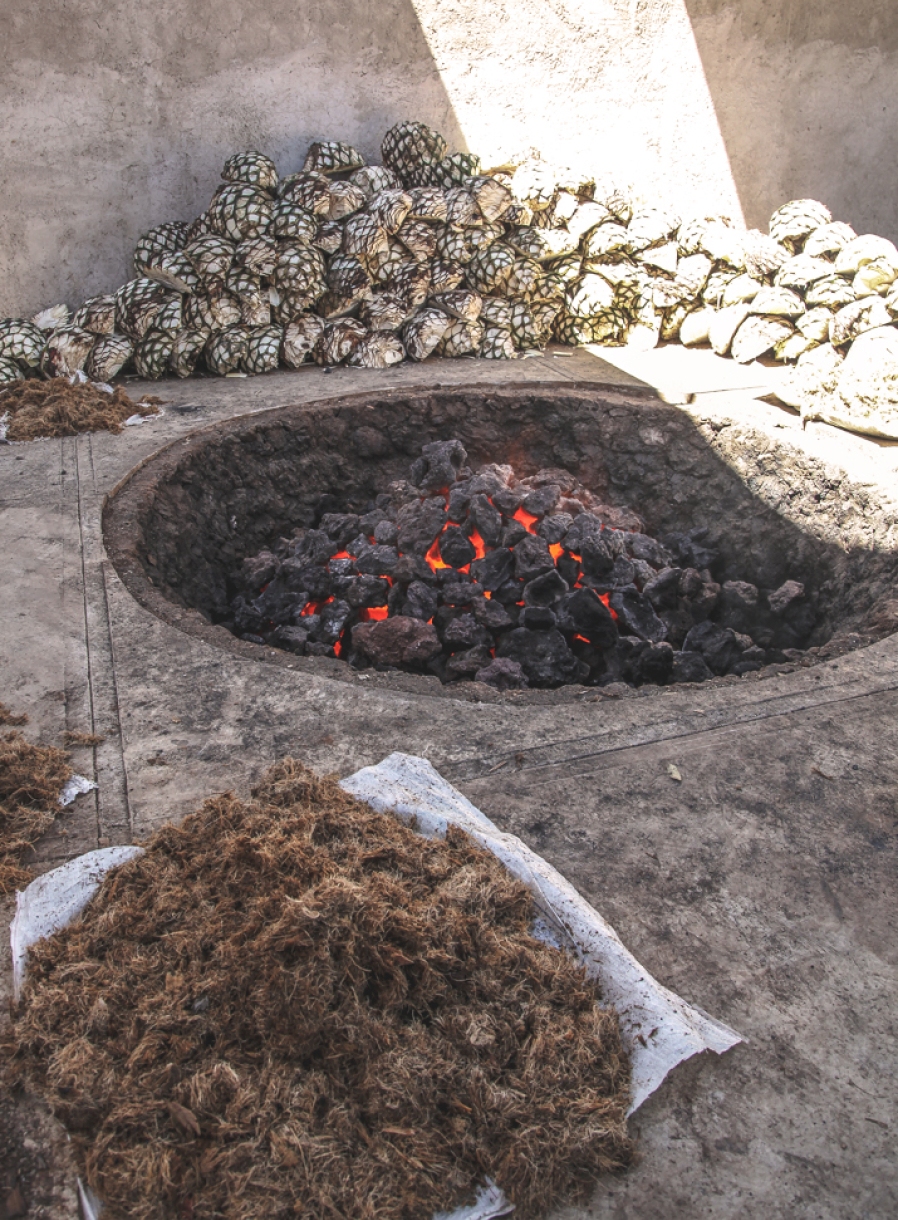

Roasting
Earthen Pit
Ancestral practice is to fire wooden coals at the base of a pit, cover them with agave fibers, pile on raw agave, cover with leaves and fabric, and then bury the entire mound. After five or so days, when the trapped heat has roasted the agave, it’s all dug up and the agaves are macerated and fermented.
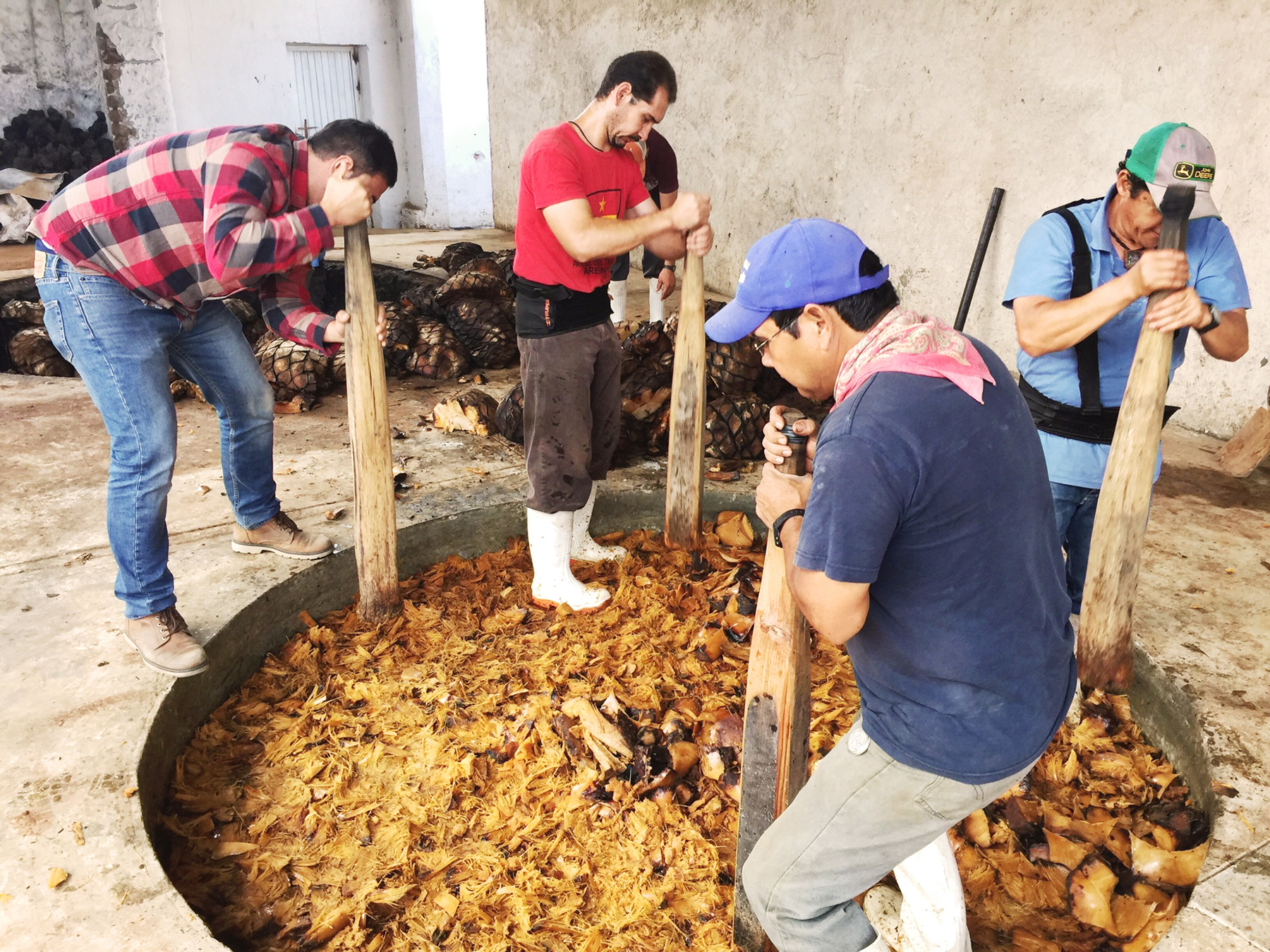
Extraction
Hand Maceration w. Wood Mallets
Ancestral is the only tequila in several hundred years to be hand macerated.
Tequileros bash the roasted agave with large wooden mallets for hours at a time until the sweet juices are extracted. Oak mallets impart a unique woody flavor, and no agave flavor is lost to machinery.

Extraction
Hand Maceration w. Wood Mallets
Ancestral is the only tequila in several hundred years to be hand macerated.
Tequileros bash the roasted agave with large wooden mallets for hours at a time until the sweet juices are extracted. Oak mallets impart a unique woody flavor, and no agave flavor is lost to machinery.
Fermentation
Brick – Wood – Natural
70% of the juice is ambient-yeast fermented in an oak tank with bagasse. 30% is ambient-yeast, bagasse-fermented in brick tanks. Using no added yeast or inducement ensures that this tequila has no other flavors than its environment would have allowed thousands of years ago.
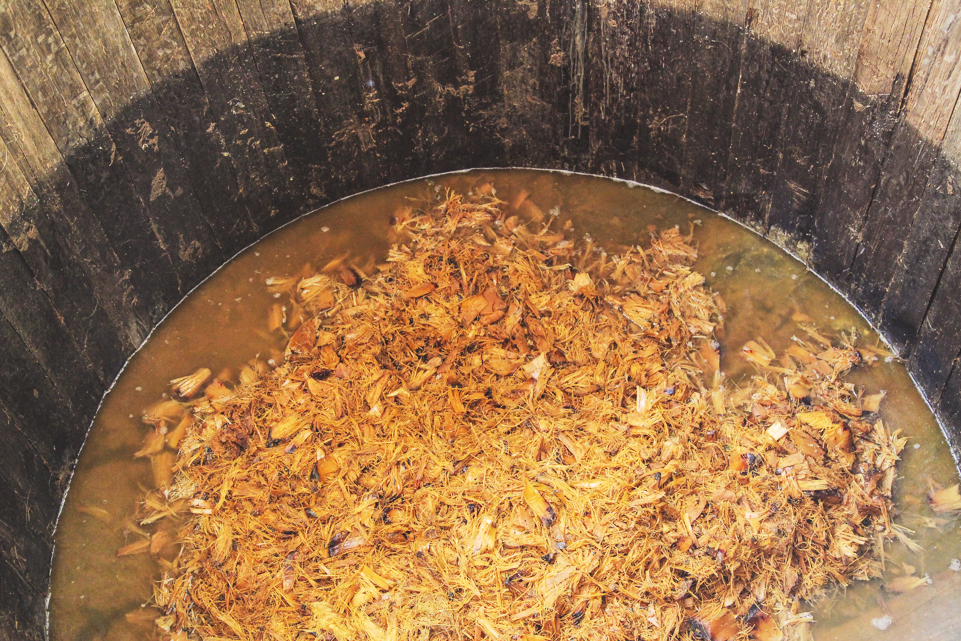

Fermentation
Brick – Wood – Natural
70% of the juice is ambient-yeast fermented in an oak tank with bagasse. 30% is ambient-yeast, bagasse-fermented in brick tanks. Using no added yeast or inducement ensures that this tequila has no other flavors than its environment would have allowed thousands of years ago.
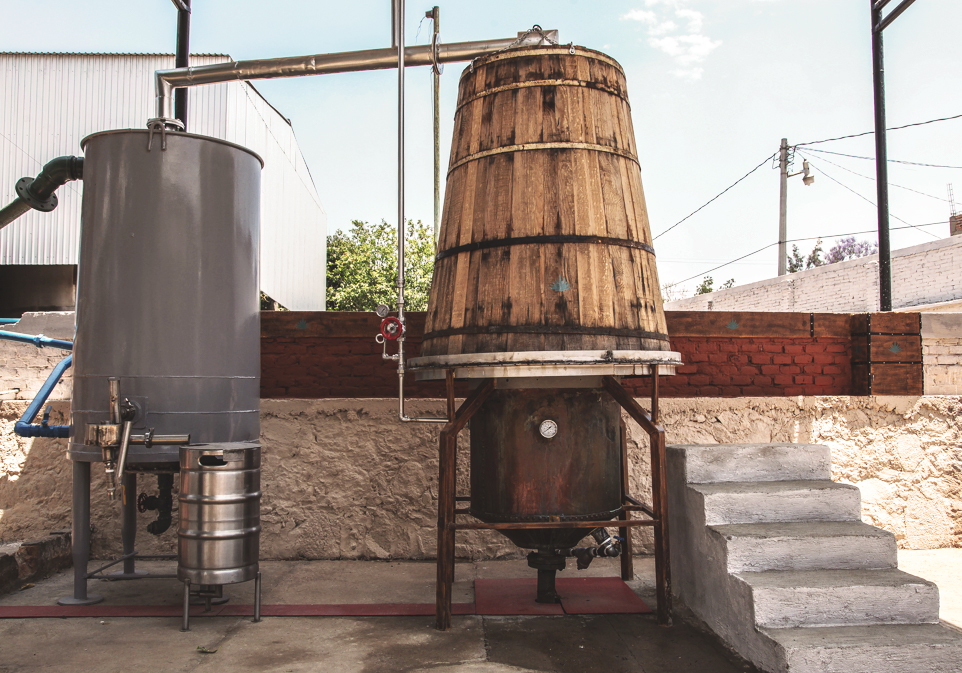
Distillation
Stainless w. Copper Serpentine Filipino-Style Pine Still
The first distillation in copper and steel separates out more toxic alcohols. The second distillation, in a pine wood Filipino-style still, is focused on flavor adjustments and ABV. The wood imparts a touch of flavor, and alcohol is adjusted to above 50%.

Distillation
Stainless w. Copper Serpentine Filipino-Style Pine Still
The first distillation in copper and steel separates out more toxic alcohols. The second distillation, in a pine wood Filipino-style still, is focused on flavor adjustments and ABV. The wood imparts a touch of flavor, and alcohol is adjusted to above 50%.
Cultivation
The first several years of your spirits’s life.
Flavors and character develop for years in the fields. Expert jimadores sow and tend agave until its mature and then deftly harvest for a traditional production. Siembra means sowing.
Cultivation
The first several years of your spirits’s life.
Flavors and character develop for years in the fields. Expert jimadores sow and tend agave until its mature and then deftly harvest for a traditional production.
Siembra means sowing.
100% Agave Tequilana Weber Azul
Also called “Blue Agave.” Known for high sugar content, relatively fast maturity, easy cloning, and beautiful blueish spikes. Due to restrictive legislation, this is the only agave allowed in tequila production.
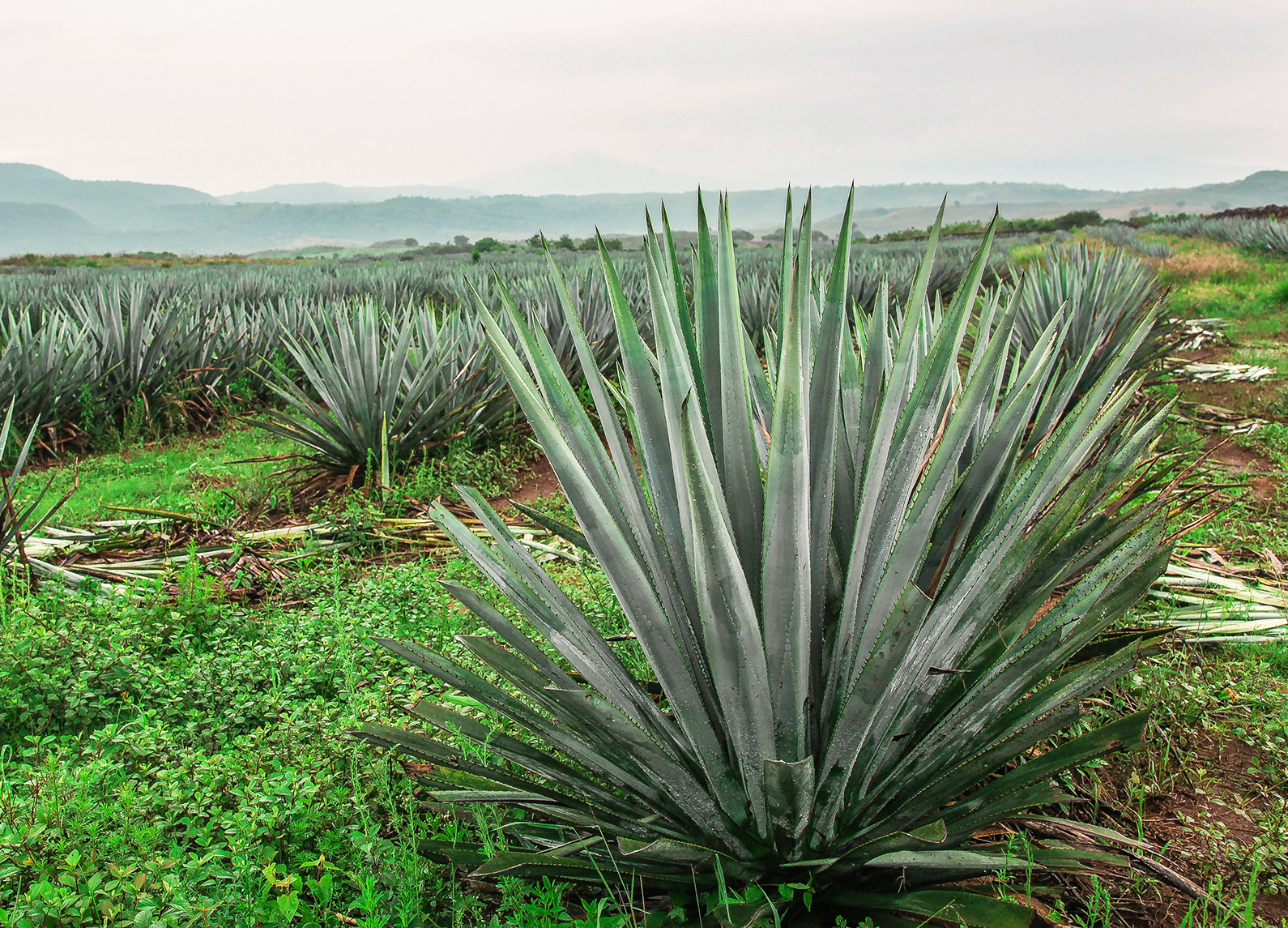

100% Agave Tequilana Weber Azul
Also called “Blue Agave.” Known for high sugar content, relatively fast maturity, easy cloning, and beautiful blueish spikes. Due to restrictive legislation, this is the only agave allowed in tequila production.
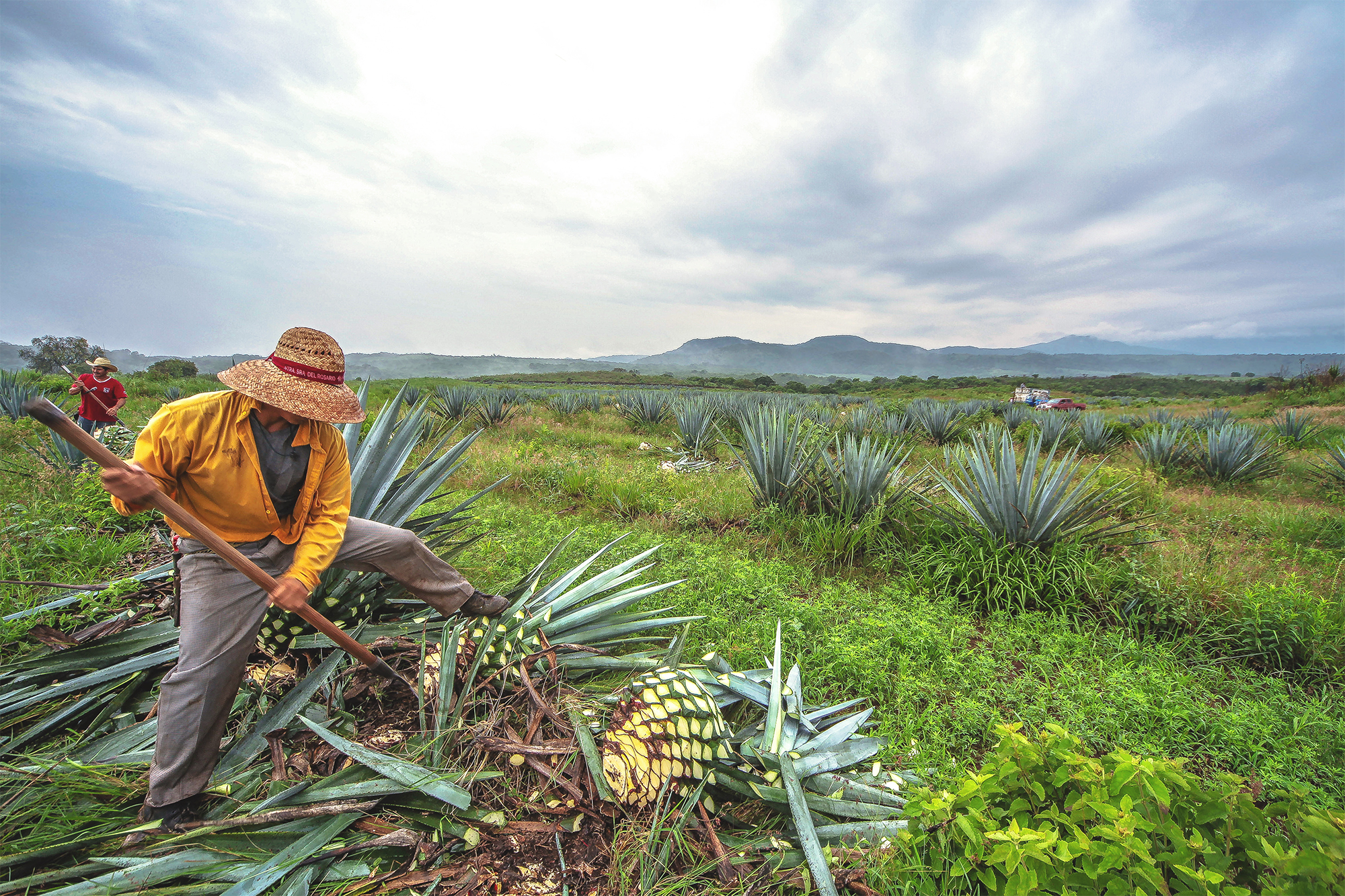
Estate Grown
The agave for this expression was grown on land owned by the producer. This eliminates the need for coyotes, who are often contracted to source harvested agave and are known to exploit jimadores and damage the agave market.

Estate Grown
The agave for this expression was grown on land owned by the producer. This eliminates the need for coyotes, who are often contracted to source harvested agave and are known to exploit jimadores and damage the agave market.
Single Estate
Every agave used in this expression was grown on the same plantation. This allows for greater expression of terroir, as the agaves from a single field will be more consistent. They’ll never be identical, though— a slight variation in elevation or sun exposure across a field can have a great impact on flavor over several years.
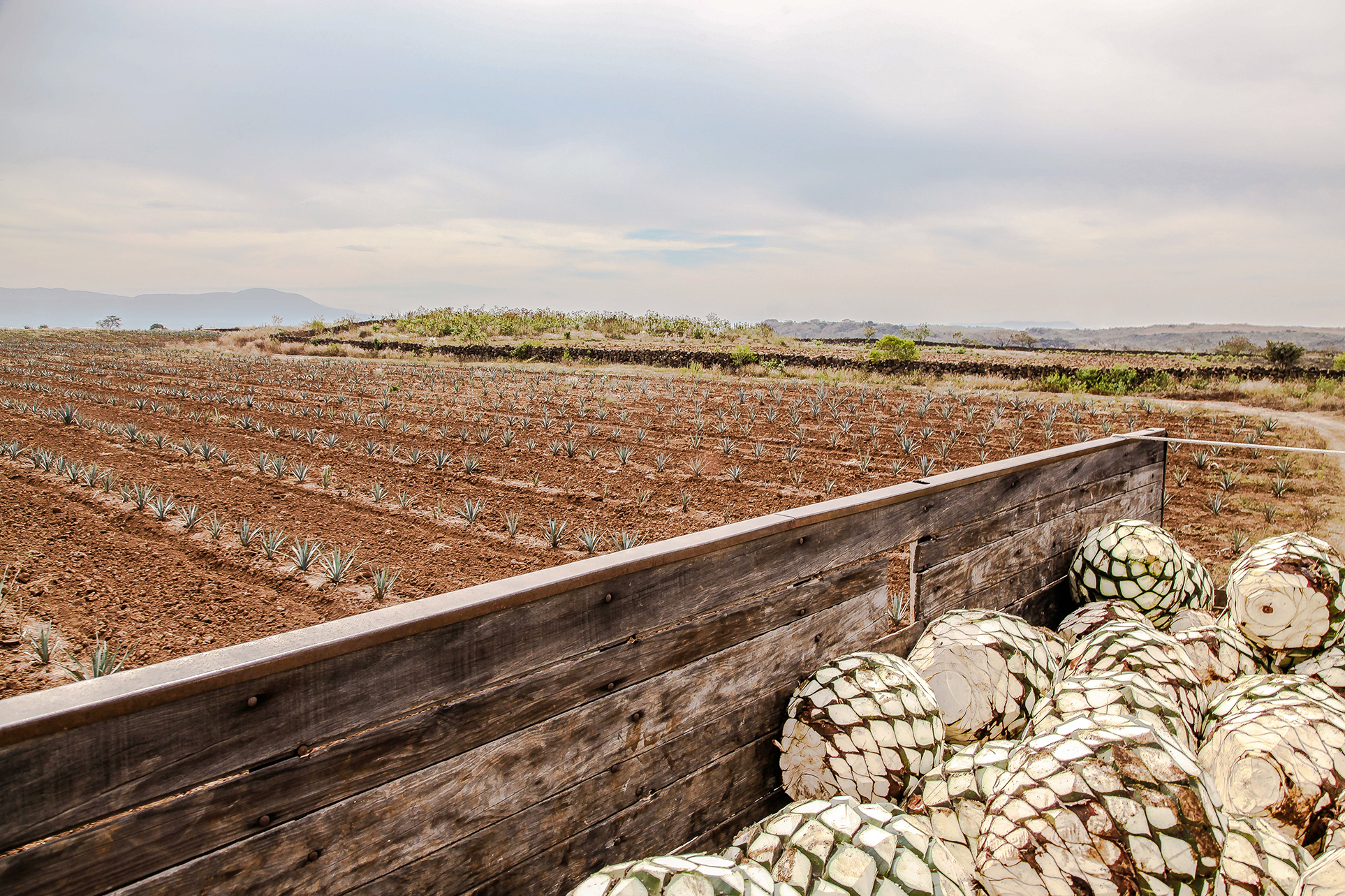

Single Estate
Every agave used in this expression was grown on the same plantation. This allows for greater expression of terroir, as the agaves from a single field will be more consistent. They’ll never be identical, though— a slight variation in elevation or sun exposure across a field can have a great impact on flavor over several years.
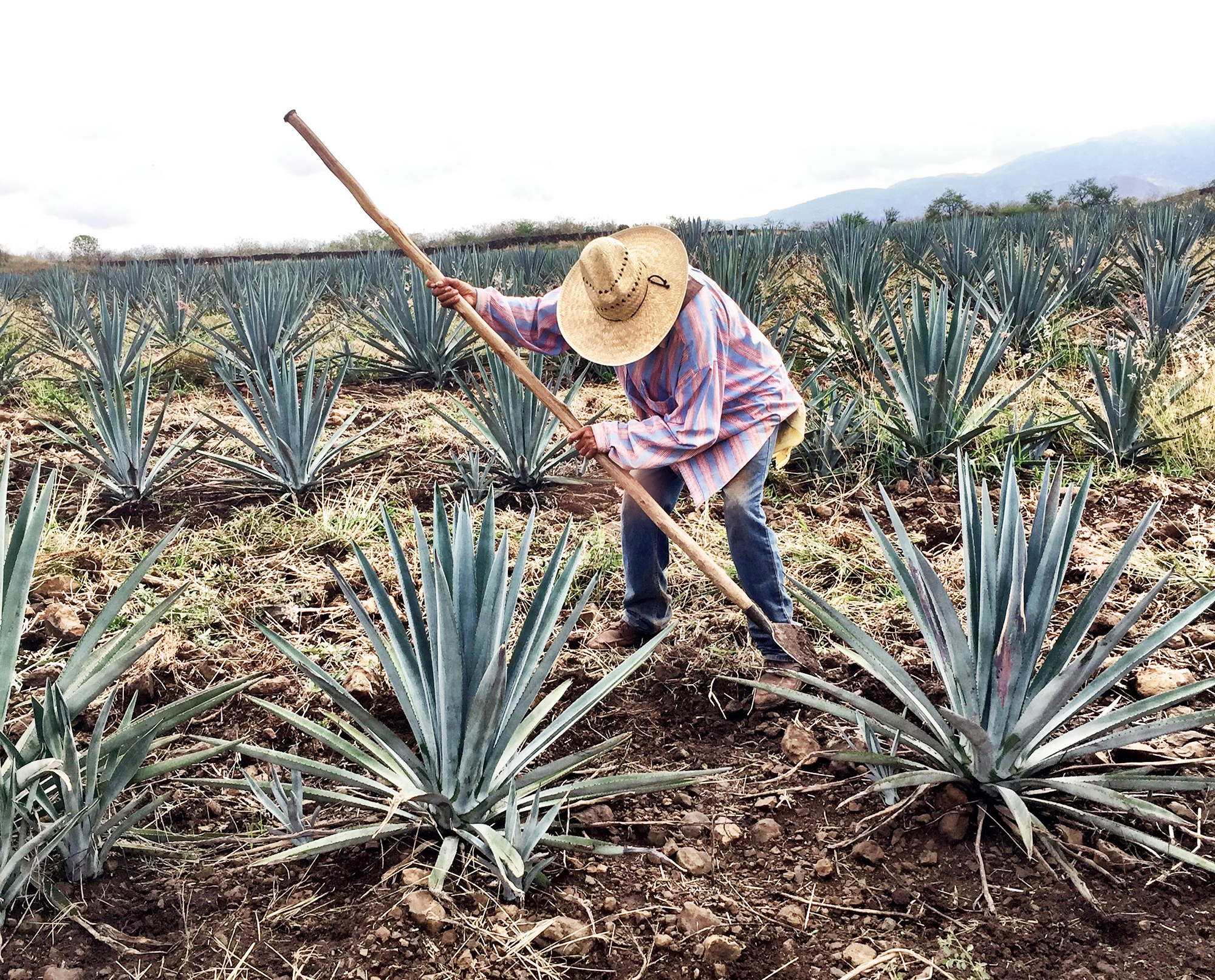
Registration #
Traceability protects your glass from counterfeit tequila. Demand it.
A grower must register agave within one year of planting to sell it to the tequila industry. The registry is meant to guarantee that the agave was grown in the Denomination of Origin, and tells us how much usable agave should be on the market, or will be in a few years.
We print agave registration numbers to show consumers that it’s possible, and something they can and should demand.

Registration #
Traceability protects your glass from counterfeit tequila. Demand it.
A grower must register agave within one year of planting to sell it to the tequila industry. The registry is meant to guarantee that the agave was grown in the Denomination of Origin, and tells us how much usable agave should be on the market, or will be in a few years.
We print agave registration numbers to show consumers that it’s possible, and something they can and should demand.
Planting and Harvest
We’re picky. Mature agave is central to traditional tequila production; years of maturation impart great depth of flavor. Some newer production methods can mask younger, lower-quality agave. Our agave-centric methods demand great raw material.
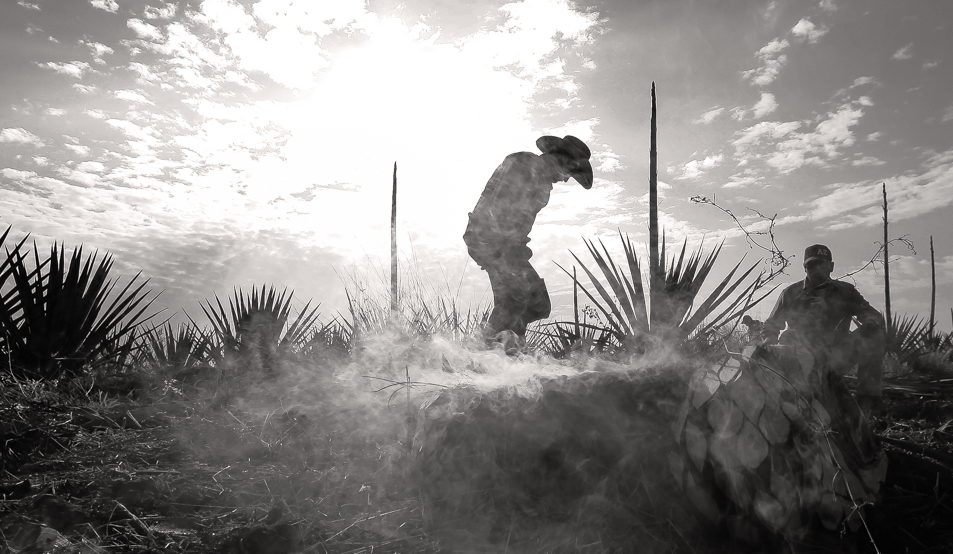

Planting and Harvest
We’re picky. Mature agave is central to traditional tequila production; years of maturation impart great depth of flavor. Some newer production methods can mask younger, lower-quality agave. Our agave-centric methods demand great raw material.
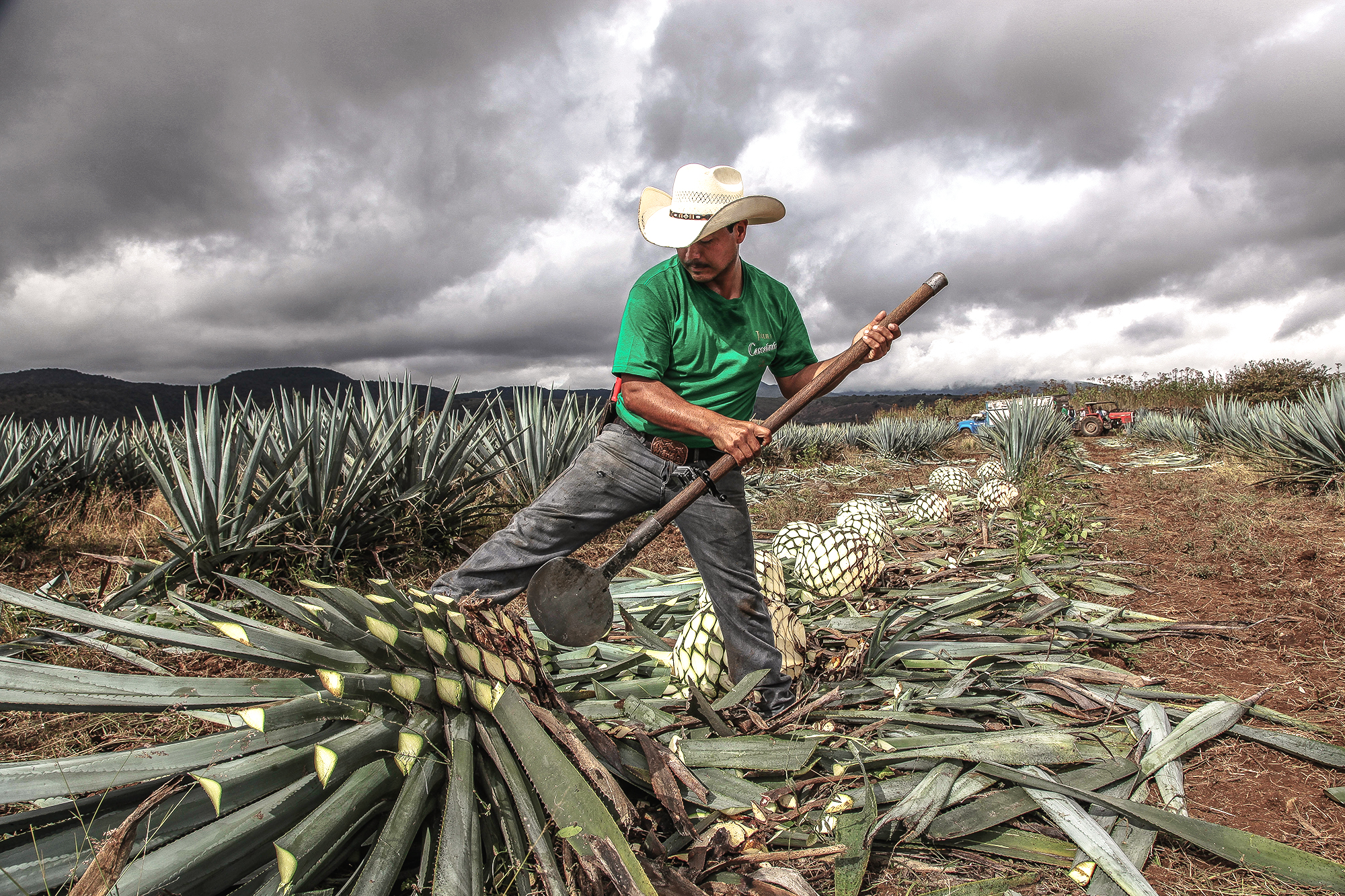
Jima Type
This refers to how close to the piña the jimadores chop the agave’s spikes. A jima larga leaves more penca, or spike, than a jima normal, which in turn leaves more than jima rasurada, which leaves essentially none. Larga is common in diffuser tequilas, normal in traditional tequila production, and rasurada in ancestral mezcal.

Jima Type
This refers to how close to the piña the jimadores chop the agave’s spikes. A jima larga leaves more penca, or spike, than a jima normal, which in turn leaves more than jima rasurada, which leaves essentially none. Larga is common in diffuser tequilas, normal in traditional tequila production, and rasurada in ancestral mezcal.
People
Terroir is deeper than soil. From fields to distillery, everyone who interacts with our materials and spirits imparts their unique contribution— the human aspects of terroir. Here are a couple names we think you should toast.
People
Terroir is deeper than soil. From fields to distillery, everyone who interacts with our materials and spirits imparts their unique contribution— the human aspects of terroir. Here are a couple names we think you should toast.
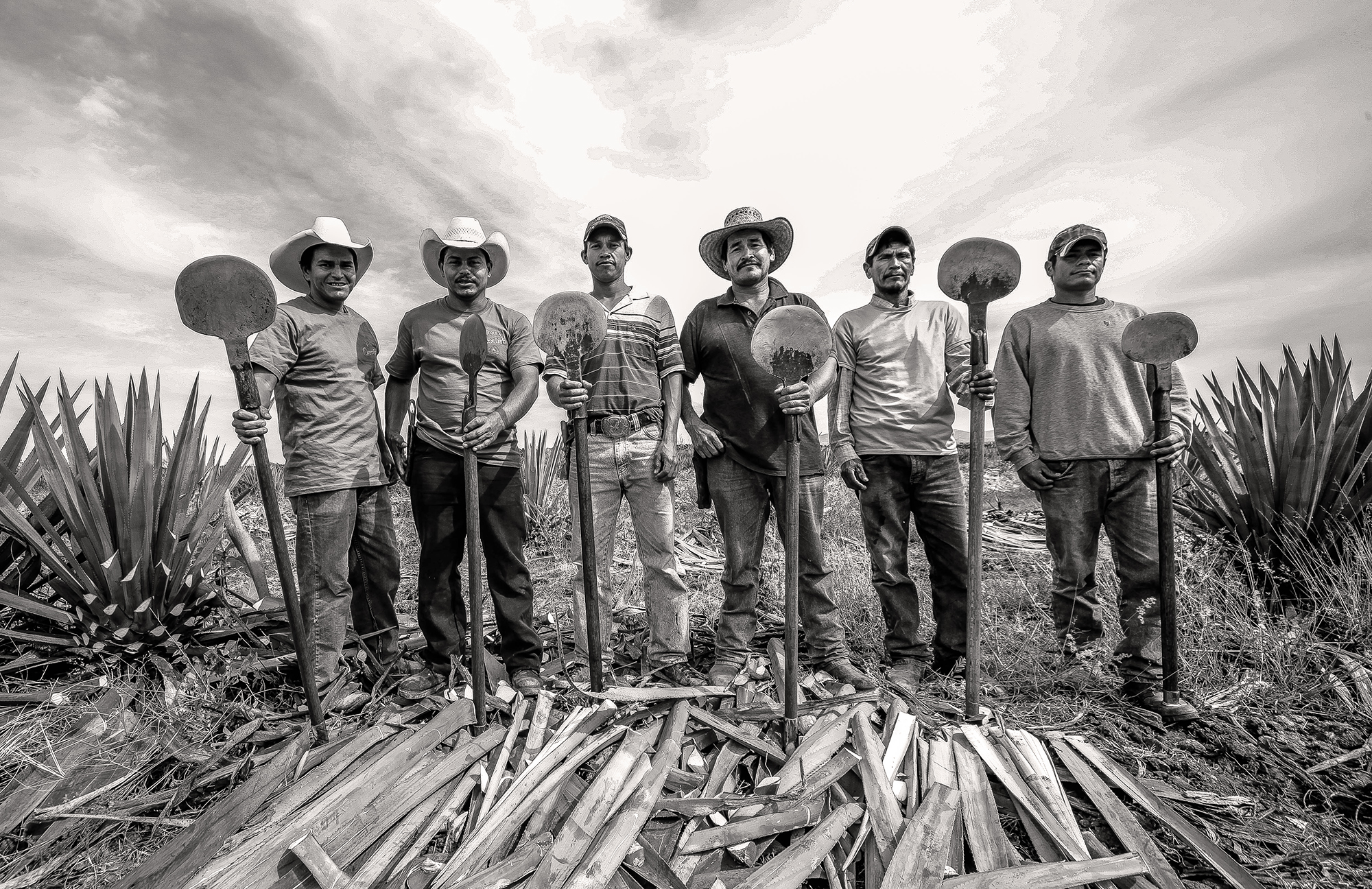
Lead Jimador
Jose Romero
Agave harvesters, called jimadores, are the hardest working people in tequila. They generally work in teams of four, called cuadrillas, expertly harvesting 20 to 40 tons of agave per day by hand. They are paid about $3.70 US per ton, which immediately sells for $1,400.
Jose Romero proudly leads this cuadrilla, who are all blood related.

Lead Jimador
Jose Romero
Agave harvesters, called jimadores, are the hardest working people in tequila. They generally work in teams of four, called cuadrillas, expertly harvesting 20 to 40 tons of agave per day by hand. They are paid about $3.70 US per ton, which immediately sells for $1,400.
Jose Romero proudly leads this cuadrilla, who are all blood related.
Master Distiller
Salvador Rosales Torres
Salvador Rosales Torres is the patriarch and Master Distiller of the family-owned Destileria Cascahuín. He oversees every aspect of production and operations, like his father before him.
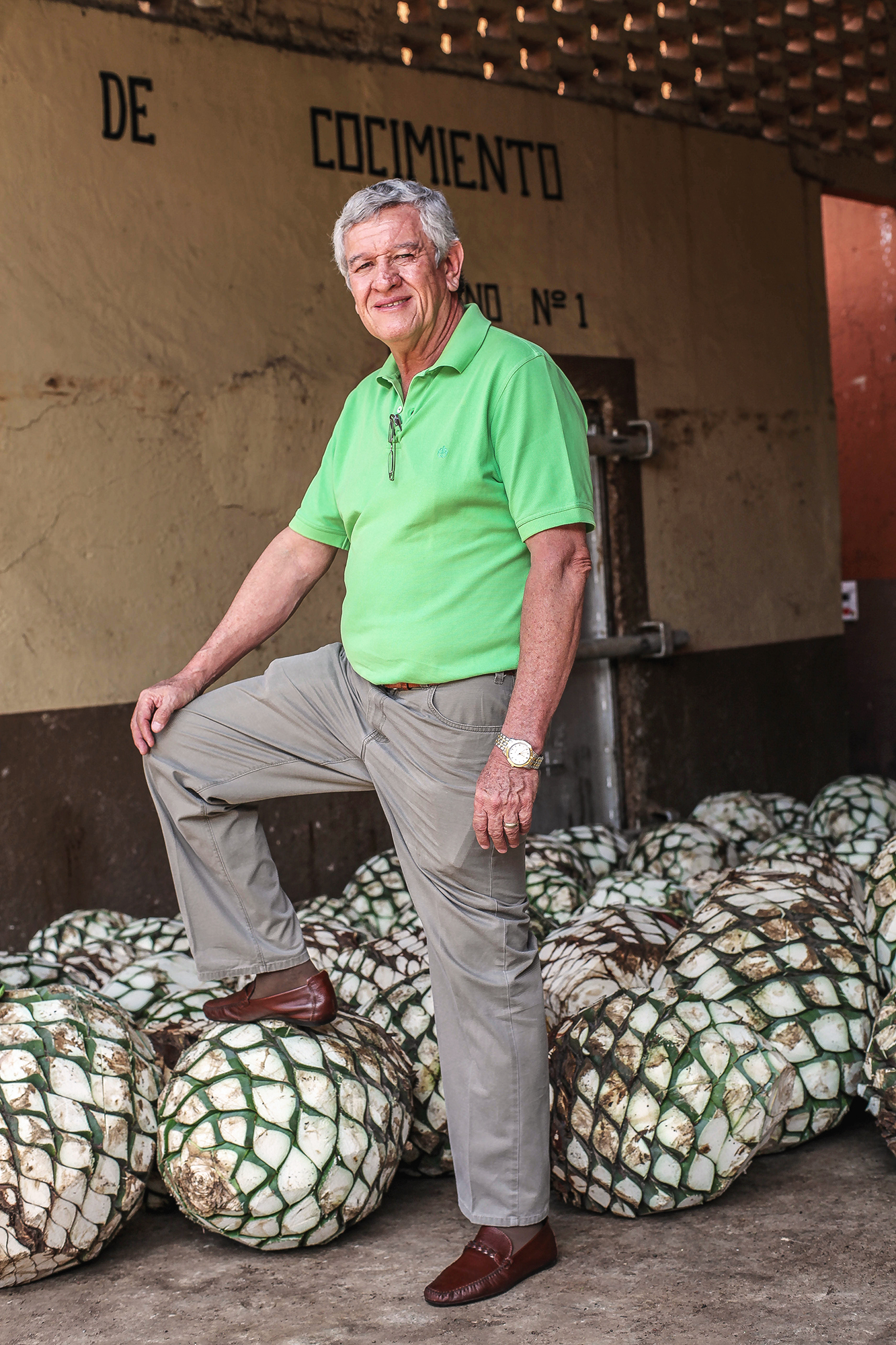

Master Distiller
Salvador Rosales Torres
Salvador Rosales Torres is the patriarch and Master Distiller of the family-owned Destileria Cascahuín. He oversees every aspect of production and operations, like his father before him.
Why So Much Info?
Production methods vary widely in tequila, and they impact sensitive ecosystems, the health of the industry and labor, and most certainly flavor. Informed consumers can seek out better tasting spirits that are better for the world.
Why So Much Info?
Production methods vary widely in tequila, and they impact sensitive ecosystems, the health of the industry and labor, and most certainly flavor. Informed consumers can seek out better tasting spirits that are better for the world.
We write our methods on every bottle
We share this information so consumers can seek out better tasting spirits that are better for the world. We’re the only brand that does all this, but we hope that soon enough there will be more.
